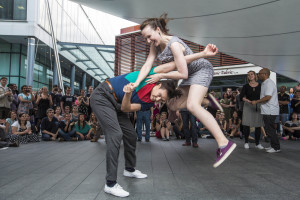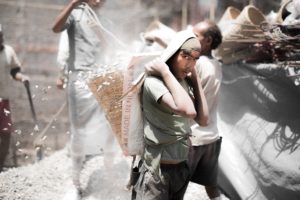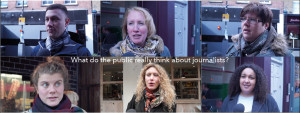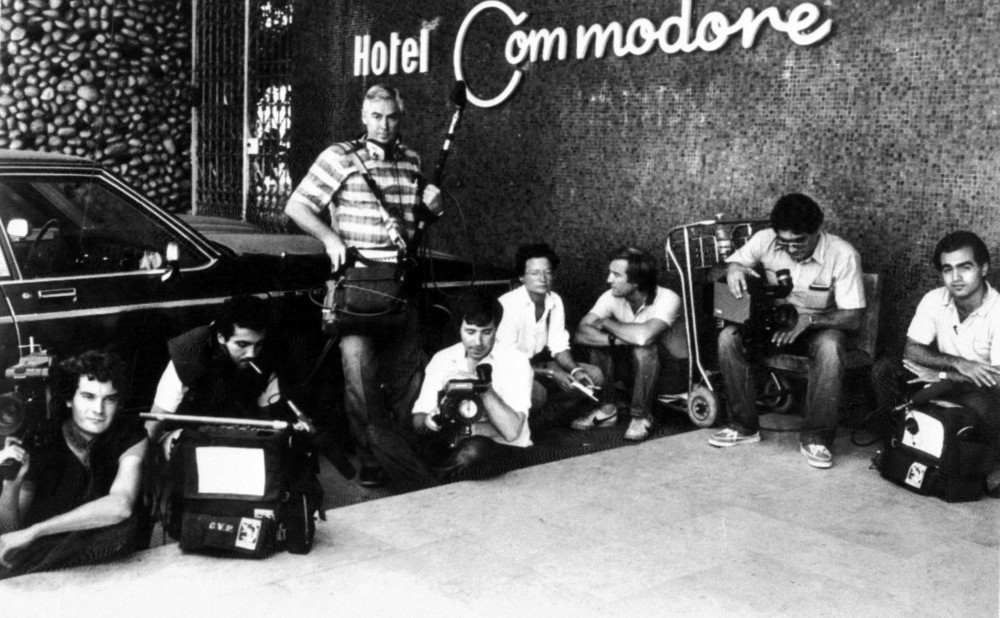
Just as some wars stand out journalistically, so do some hotels. They are the places where the journalists covering the war congregate to swap stories, describe what they’ve seen, hear briefings from generals – and, of course, write and file their copy. XCity Plus looks at some of the most memorable “war hotels” and the stories attached to them…
- Holiday Inn, Sarajevo, Bosnia
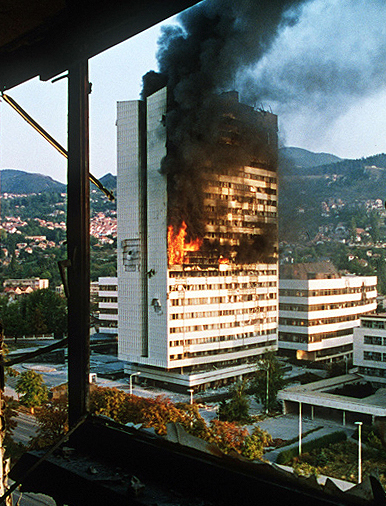
At the height of the 1990s Bosnian War, Sarajevo’s Holiday Inn became the base for foreign war reporters. Located right on “Sniper Alley”, it was one of the most dangerous areas in Sarajevo – but it was the only hotel open in the city. BBC correspondent Martin Bell described the hotel as “ground zero”. He said: “From there, you didn’t go out to the war, the war came in to you.” It has since been renamed the Olympic Hotel Holiday Sarajevo, but its yellow façade remains, along with the shelling scars.
- Europa Hotel, Belfast, Northern Ireland
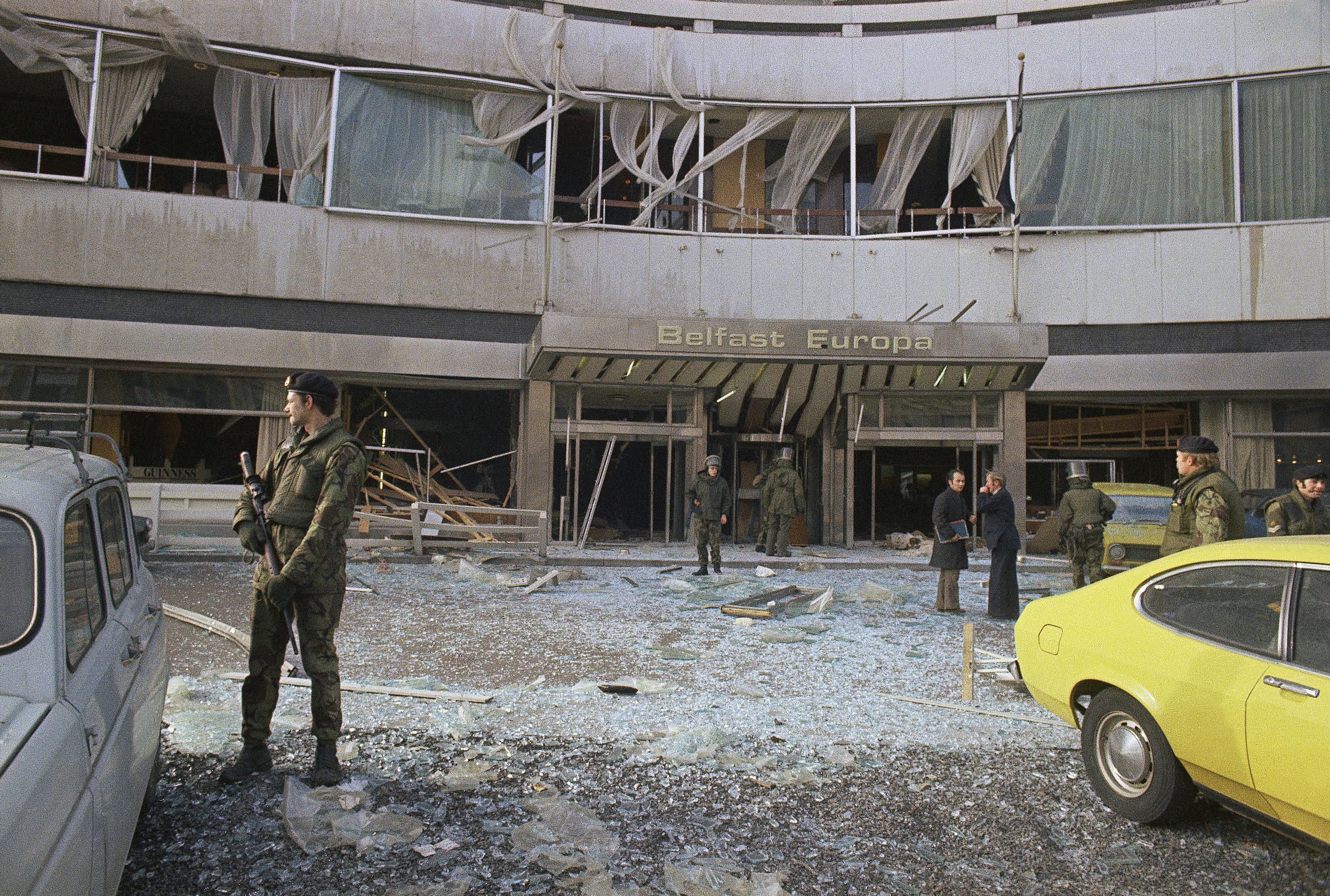
Situated next to Belfast’s Grand Opera House, the Europa Hotel was dubbed “Europe’s most bombed hotel” after being hit 33 times by IRA bombs during the early 1970s. Hardboard was used as a temporary substitute for shattered glass, earning it the nickname “the Hardboard Hotel”. Despite this, it was buzzing with journalists during the Troubles. In keeping with its “we never close” motto, it became known as a symbol of endurance during the conflicts. In 2011, the Europa celebrated its 40-year anniversary and it now attracts many public figures and celebrities. It has previously hosted guests such as Hillary Clinton, Julia Roberts and Lionel Richie.
- Rixos Al Nasr Hotel, Tripoli, Libya
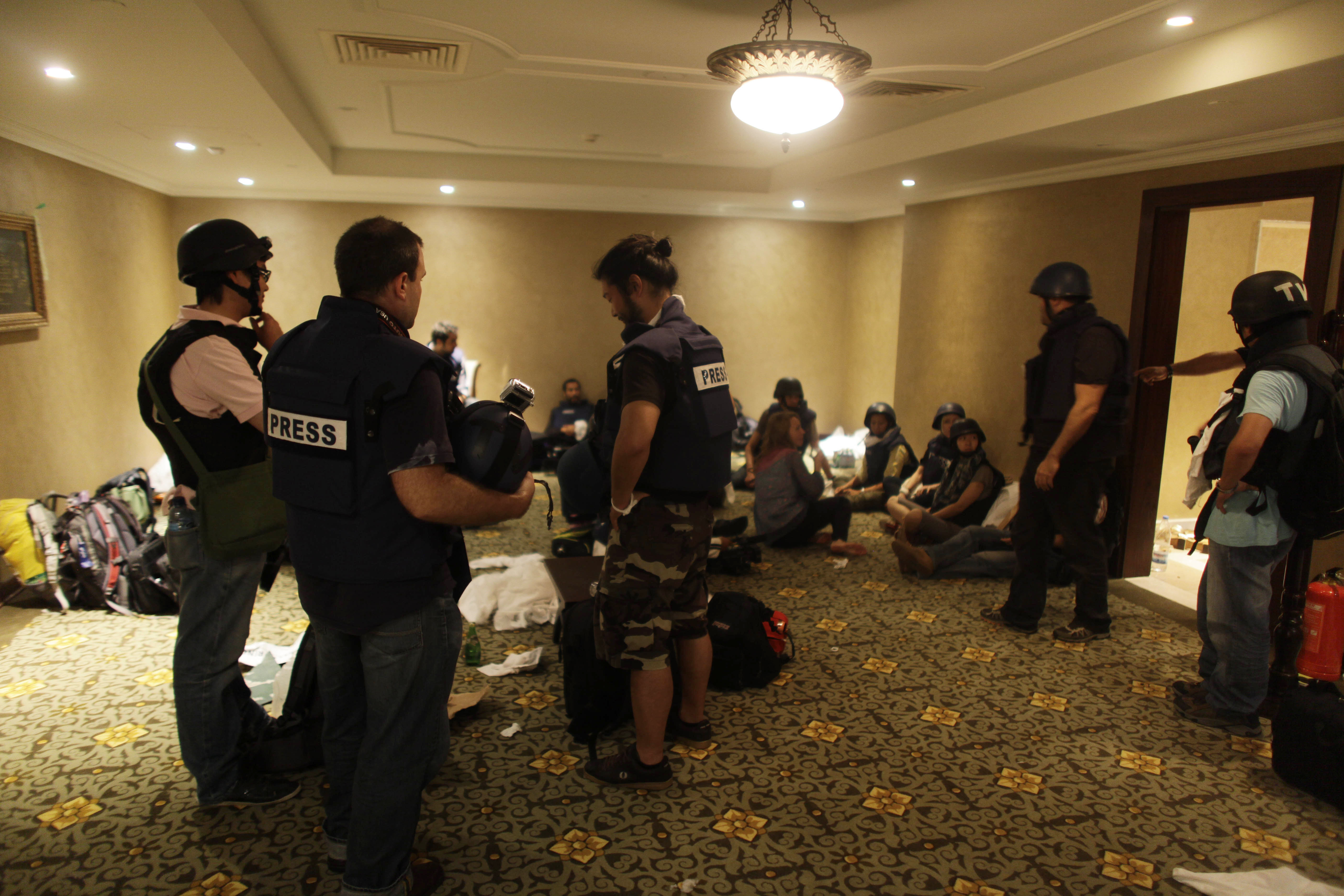
In 2011, the Rixos Al Nasr Hotel in Libya became a kind of luxurious detention centre for journalists covering the Libyan uprising against Muammar Gaddafi. Reporters called it “the Hotel California” – you could check out, but never leave. Government minders would accompany journalists when they went anywhere outside of the hotel and they were only allowed to travel to certain approved locations. Jonathan Miller, foreign affairs correspondent for Channel 4, described reporters huddling together in the lobby to “file copy, call contacts and write about a war we’re not allowed to witness”. In late August, 35 journalists were held captive under armed guards, trapped inside the hotel as battle raged outside its doors. The journalists lit candles and listened to the gunfire in the dark. After five days, they were all released without harm, but many said that when they eventually left the hotel, it felt like leaving a prison.
- The Palestine Hotel, Baghdad, Iraq
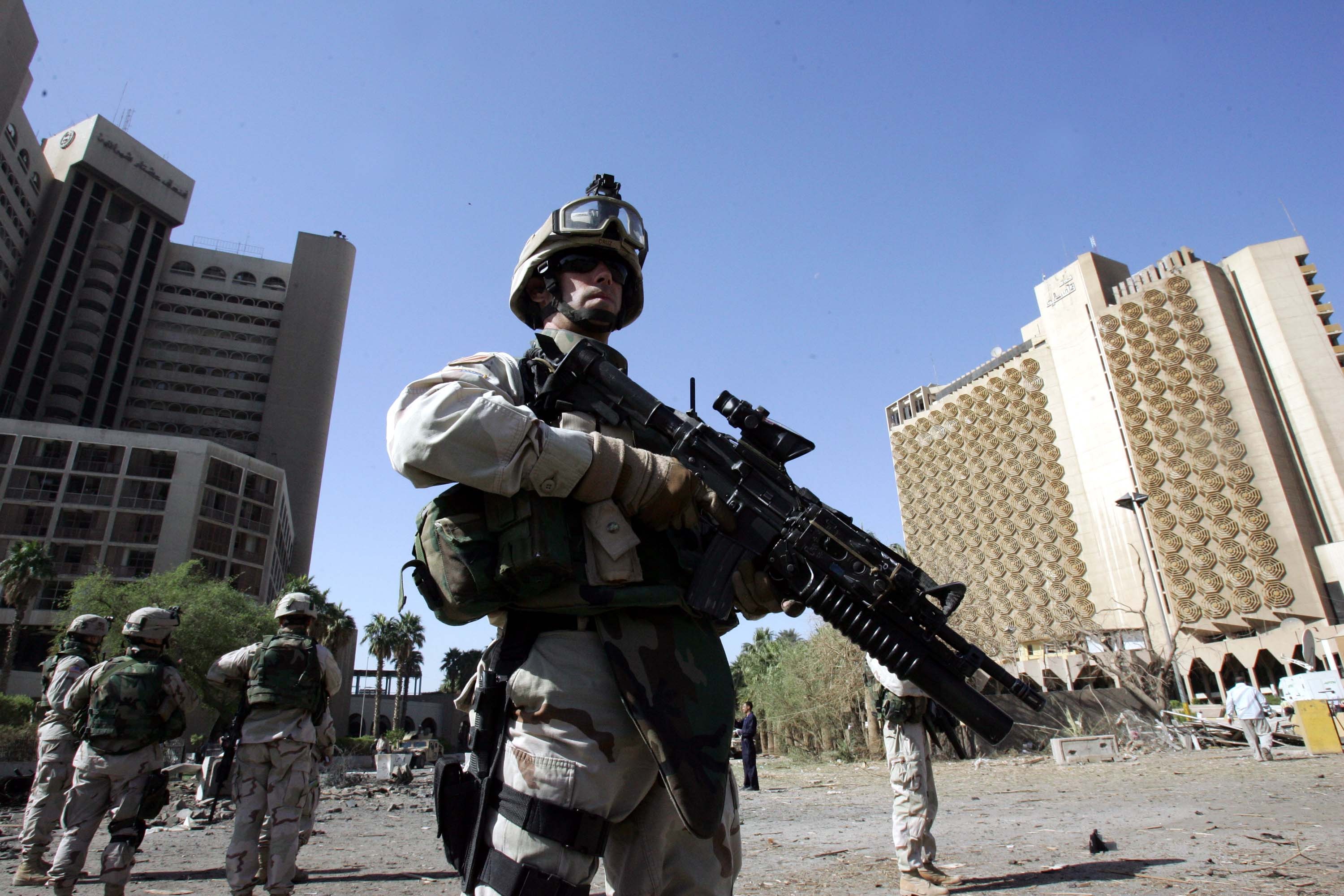
On April 8, 2003, three journalists were killed after an American tank fired a shell at a suite on the 15th floor of The Palestine Hotel in Baghdad. The hotel had become home to the world’s media reporting on the Gulf War in 1991 in the last days of the Saddam Hussein regime. Its location, directly opposite the Hussein statue in Firdos Square, provided a front row seat for the US troops toppling of the effigy on April 9, 2003. The extraordinary scene was broadcast live around the world, marking the symbolic end to the Battle of Baghdad.
- The Commodore, Beirut, Lebanon

After many hotels were destroyed during the Lebanese Civil War, The Commodore became a safe haven for journalists reporting on the conflict there. It was seen as a safer residence, partly due to where it was situated – the hotel was tucked between taller buildings, which usually took the brunt of shell fire – but also because the Palestinian Christian family who owned the hotel somehow managed to keep rival militia groups away. Journalists said they were taken care of at The Commodore, particularly in the bar, which became famous for housing an African grey parrot who would mimic the sound of the incoming shells.



